MercoPress. South Atlantic News Agency
Uruguay
-
Wednesday, January 6th 2010 - 03:19 UTC
Uruguay confirms total support to China’s Taiwan and Tibet policies

China thanked Uruguay for its staunch and sustained support in crucial issues such as the one-China policy and Tibet. Wu Bangguo, chairman of the Standing Committee of the National People’s Congress and Uruguay’s Lower House president Roque Arregui, currently visiting China, met earlier this week in Beijing.
-
Tuesday, January 5th 2010 - 12:33 UTC
Uruguayan beef and vegetables in Argentina’s 2011menu
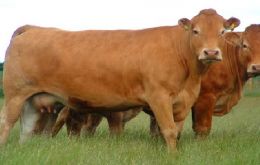
Argentina is a nation that prides itself on having more cattle than people but because of erred policies may soon be forced to import beef to keep its meat-loving citizens happy at the dinner table.
-
Thursday, December 31st 2009 - 11:12 UTC
Uruguayan economy forecasted to grow 4%; peso appreciated 25% in 2009
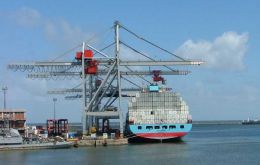
Uruguay’s peso achieved a record annual gain as neighboring Brazil’s economic recovery fueled demand for the country’s exports. The peso has jumped 25% this year, (9.4% in the last quarter) its biggest annual advance since the government created it in 1993 to replace the nuevo peso as part of an effort to stem surging inflation.
-
Wednesday, December 30th 2009 - 15:49 UTC
Uruguay’s outgoing and incoming administrations agree on transition process
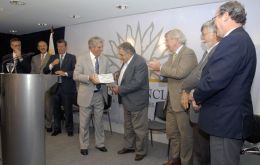
The Uruguayan government begun Tuesday the formal transition process during a ceremony attended by President Tabare Vazquez, president elect Jose Mujica and most of the cabinet of the administration that will be officially inaugurated next March first.
-
Wednesday, December 30th 2009 - 15:46 UTC
The day a young rookie doctor saved the life of super star Maradona

The Uruguayan doctor who ten years ago played a crucial role in saving the life of Argentine football star Diego Maradona, collapsed under the effects of an overdose of cocaine, revealed details of the emergency evacuation of that day, a day he will never forget.
-
Tuesday, December 29th 2009 - 07:26 UTC
Uruguayan organic beef at Shanghai’s world expo next year
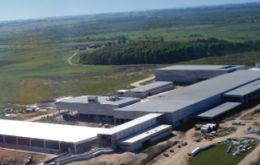
Uruguayan organic beef directly from the country’s natural pastures will be available at a restaurant catered by Uruguayans at the Shanghai World Expo next year.
-
Monday, December 28th 2009 - 12:49 UTC
Spanish bank forecasts strong recovery of Uruguayan economy in 2010

Spanish bank BBVA anticipates a strong recovery of the Uruguayan economy next year with one of the highest growth rates in the region and discards “any turbulences or surprises with the new government, it’s going to be continuation of current policies”.
-
Monday, December 28th 2009 - 12:21 UTC
Uruguay releases stamp issue on 70th anniversary of Battle of the River Plate

Uruguay released a stamp issue to commemorate the 70th anniversary of the Battle of the River Plate --December 13th 1939--, which ended with the scuttling of the German pocket battleship Admiral Graf Spee.
-
Saturday, December 26th 2009 - 13:27 UTC
Low cost, no frills ceremony planned for Mujica’s March inauguration

Uruguayan president elect Jose Mujica anticipated that the inauguration ceremony next March first will be in the open, paid by “friends” with no military parade, but with numerous music and dance groups playing to make it a real popular celebration, according to several reports in the Montevideo press.
-
Friday, December 25th 2009 - 16:40 UTC
US Senate confirms ambassadors: Shannon to Brazil and Nelson to Uruguay
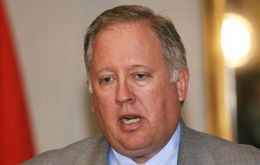
United States Senate confirmed Thomas Shannon as the newly appointed US Ambassador to Brazil, after a long delay due to the veto of Republican national deputies, who have showed discontent towards US President Barack Obama's policies as regards Latin America.
